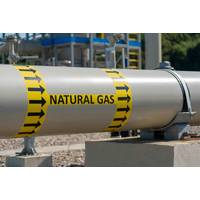Philadelphia Energy Firms Seek Rail Line Changes
Philadelphia-area energy officials are in talks with the local commuter rail agency to increase access to a three-mile stretch of rail near the city's airport to allow for greater shipments of Bakken crude oil, people familiar with the talks told Reuters.
The outcome of the negotiations will determine whether Monroe Energy, the Delta subsidiary that runs the 165,000-barrel-a-day refinery in Trainer, Pennsylvania, will be able to reduce its reliance on oil shipped from the Gulf Coast and increase its intake of less-expensive Bakken crude.
The discussions in Philadelphia provide a snapshot of the national debate over how to manage the country's rail assets amid the boom in shipping crude over the tracks. Rail shipments of oil have jockeyed with passenger cars and grain cargoes for space on the tracks.
Once on life support, the Philadelphia area refining industry has been revived by rail deliveries of Bakken crude oil, giving refiners a less expensive option than importing foreign crude. Today, Philadelphia is the largest consumer of Bakken crude oil.
The airport line helps bring crude oil to the Eddystone rail facility, a joint venture between Enbridge Inc. and Canopy Prospecting. It takes in about a unit train a day and pumps the oil into a ship that carries it to Delta's refinery. Eddystone could accept more crude oil daily, but it is handcuffed by a restriction that limits its access to the commuter line to about four hours each night.
Currently, the South Eastern Pennsylvania Transportation Authority, or SEPTA, says freight rail carriers like Norfolk Southern and CSX can only use the three-mile stretch between 12:30 a.m. and 4:30 a.m., when it's not shuffling riders between the airport and the city. The window only allows for one full unit train and one empty train to come through daily.
"We have an obligation to make sure that passenger service is not disrupted," SEPTA Deputy General Manager Jeff Knueppel said. "Our lines run every half-hour, and it takes about 23 minutes for their trains to come through, so it's not possible to co-exist."
Knueppel said the only real solution would be to add another track for freight shipping, a costly option that he says won't be borne by the agency. He said the parties involved are in discussions but the decision may ultimately depend on whether expansions take place at Eddystone to justify the investment in a new section of rail.
Monroe wants to build a 200,000 bpd pipeline between its refinery and Eddystone. The company held community hearings on the topic this summer, and a final decision about moving forward is expected soon. Meanwhile, Eddystone wants to expand its facility by adding additional tracks and storage on an adjacent lot it owns.
"Anything that would relax those hours and get more product into the facility would certainly be welcome," said Adam Gattuso, a Monroe spokesman who is coordinating community outreach on the pipeline project.
Larry Springer, a spokesman for Enbridge, said the company is aware of the ongoing discussions to move crude during other than the morning hours.
"Any investments to expand the allowable time for freight shipment in this area should facilitate the opportunity for an additional train per day to call at the (Eddystone) facility," Springer said.
Norfolk Southern and CSX officials declined to comment on the discussions. Officials with Canopy Prospecting also declined to comment.
(Reporting By Jarrett Renshaw; editing by Jessica Resnick-Ault and Chizu Nomiyama)


